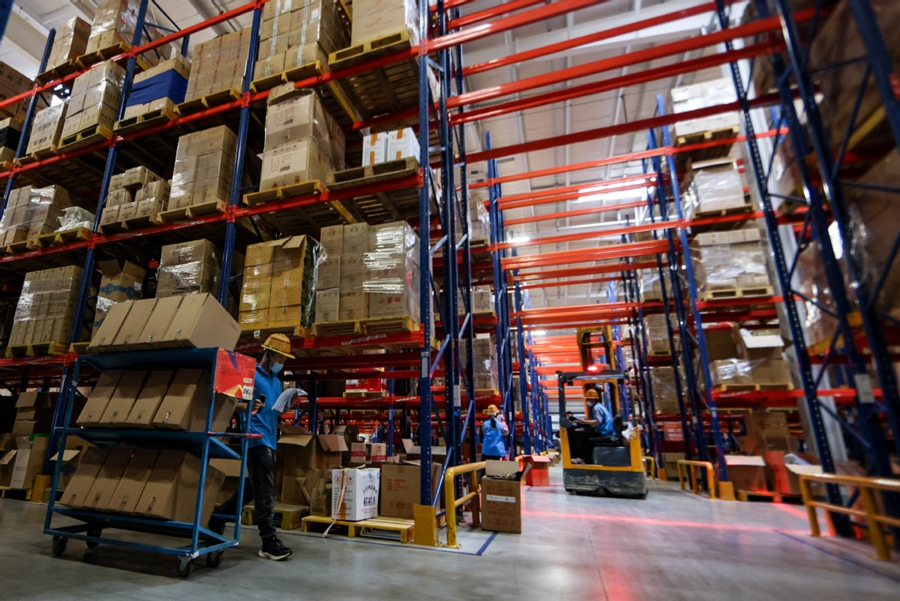Cross-border e-commerce lifeline for exporters

Employees sort packages at a logistics center in Guiyang, Guizhou province. [Photo/Xinhua]
More industrial clusters in China with traditional foreign trade advantages have achieved global business expansion and brand building through exports via cross-border e-commerce, according to a report released on Tuesday.
The report on industrial cluster development of China's exports using cross-border e-commerce released by Amazon Global Selling in Guangzhou, capital of Guangdong province, indicates that industrial clusters of China's exports using such platforms have accelerated transformation and upgrading, showing a trend of moving from prosperous coastal areas to inland western locations.
The report, targeting 17 industrial clusters, covered major areas including the thriving Pearl River Delta and Yangtze River Delta regions, the West Straits Economic Zone and northern, central and western parts of China.
"As a new business form of foreign trade, China's exports using cross-border e-commerce have shown great resilience over the past few years, releasing more business potential in the global market," said Peng Jiaqi, vice-president of Amazon China.
Chinese exporters in advantageous industrial clusters have shown great potential and vitality in research and development, design, product innovation, brand building and global expansion, Peng said.
Import and export volume of China's cross-border e-commerce totaled 1.98 trillion yuan ($287.3 billion) in 2021, up 15 percent year-on-year, said the General Administration of Customs.
E-commerce exports stood at 1.44 trillion yuan, an annual increase of 24.5 percent.
Separately, the export volume of the country's cross-border e-commerce grew about 40 percent annually from 2017 to 2021, according to the report.
"The new generation of consumers has become major forces for growth in global e-commerce, bringing tremendous market opportunities for Chinese exporters," Peng added.
Over the years, a growing number of Chinese exporters with traditional advantages in foreign trade have taken the path of digitalization with the help of cross-border e-commerce, which can help them directly reach overseas consumers, according to the report.
By the end of August, Linsy Home, a leading Chinese furniture company based in Foshan, Guangdong province, realized an overseas sales increase of more than 100 percent year-on-year using Amazon.
"We have built a relatively complete data and supply management system, which is of great importance to improvement of sales efficiency in overseas markets," said Yang Shuo, operating director of Linsy's overseas business department.
Facing the fast changing external environment, Chinese sellers also accurately capture consumer needs, responding in a timely manner and rapidly developing products that meet market needs, the report said.
"We have expanded our advantages of rapid iteration and intelligent innovation to foreign markets and developed furniture products that adapt to the use scenarios of foreign consumers," said Yang.
To facilitate development of China's exports in new channels, a trade fair focusing on cross-border e-commerce is scheduled to open in Guangzhou in November, with participation of more than 1,500 Chinese exporters and over 30 domestic and overseas cross-border e-commerce platforms.